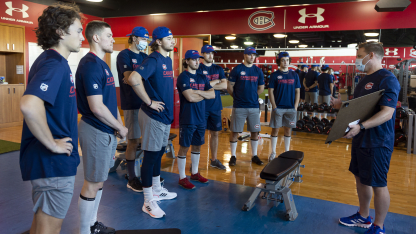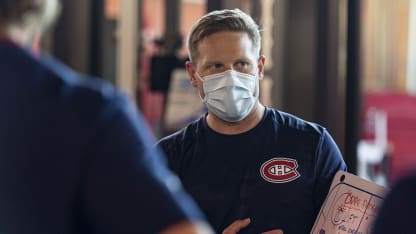Douglas spent the majority of the season with the Canadiens, but shifted his focus to the club's AHL affiliate and various prospects scattered around North America and Europe.
So, what's the key to asking the right questions?
"One of our biggest focuses this year is relationships," said Douglas. "Meeting with our prospects, understanding what situation they're in, and how we can best chart a course for them moving forward.
"We believe in an individualized approach. A hockey team is made up of 25 individual athletes, so we treat them that way. We meet with the players and we create an individual development plan for them. Adam (Nicholas) and I will identify certain things in their game that'll make them better players. Management gives us their feedback, then we figure out what we can do from an off-ice perspective to help them out, whether that's mobility, strength, body composition, or anything else."
It's an approach that enables the team to understand the ebbs and flows of every athlete within the organization, and it could be as easy as developing a better hydration plan to prevent cramping.
Douglas and his group come up with scientifically-based strategies by reviewing relevant papers and literature, instead of simply throwing darts at a wall.
There's also constant monitoring, and that starts at the Combine.
Interviews notwithstanding, the workouts set a benchmark which helps teams get a sense of a player's physical maturity. Those measurements can then be used to gauge progress over time.



